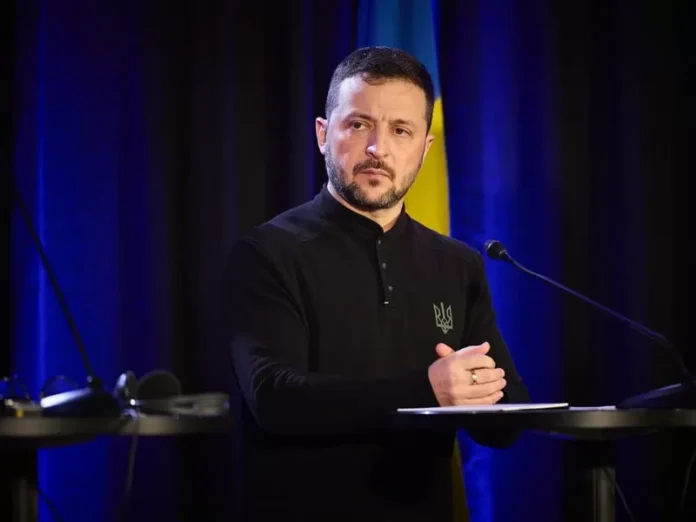Ukraine’s President Volodymyr Zelensky announced on December 19 during a press conference in Brussels that the country will fully cease the transit of Russian gas through its territory. The conference was broadcasted on Zelensky’s Facebook page.
This decision comes as a significant move in the ongoing energy dispute between Ukraine and Russia. For years, Ukraine has served as a major transit route for Russian gas to Europe, earning the country billions of dollars in transit fees. However, the relationship between the two countries has been strained since the annexation of Crimea in 2014 and the ongoing conflict in eastern Ukraine.
In his press conference, Zelensky stated that this decision is in line with Ukraine’s efforts to become energy independent and reduce its dependence on Russia. He also emphasized that the decision was not politically motivated, but rather a business decision based on economic factors.
This move has been welcomed by the European Union, which has been supporting Ukraine’s efforts to reduce its reliance on Russian gas. The EU has been actively working towards diversifying its energy sources and reducing its dependence on Russia, making this announcement a step in the right direction.
Ukraine’s decision to stop the transit of Russian gas is a bold move that will have significant implications for both countries. For Ukraine, it means losing a significant source of income, but it also shows the country’s determination to break free from the grip of its powerful neighbor. For Russia, it means losing a major transit route and potential leverage over Ukraine.
This decision also has implications for Europe, as it could potentially lead to disruptions in gas supply during the winter season. However, the EU has been taking measures to ensure that this does not happen, including increasing its own gas reserves and exploring alternative routes for gas supply.
Despite the potential challenges, Ukraine’s move has received widespread support and praise. It is seen as a bold step towards energy independence and a clear message to Russia that Ukraine will not be controlled by its gas supplies.
This decision also aligns with Ukraine’s efforts to modernize and reform its energy sector. The country has been working towards improving its infrastructure and attracting foreign investment to develop its own gas reserves. With this decision, Ukraine is showing its commitment to becoming a self-sufficient and competitive player in the European energy market.
Furthermore, this move is a positive sign for Ukraine’s relationship with the EU. It shows that the country is willing to take bold steps towards European integration and align its policies with those of the EU.
In conclusion, Ukraine’s decision to stop the transit of Russian gas through its territory is a significant move that has been met with widespread support. It is a clear demonstration of the country’s determination to become energy independent and reduce its reliance on Russia. This decision also has positive implications for Ukraine’s relationship with the EU and its efforts to modernize its energy sector.

